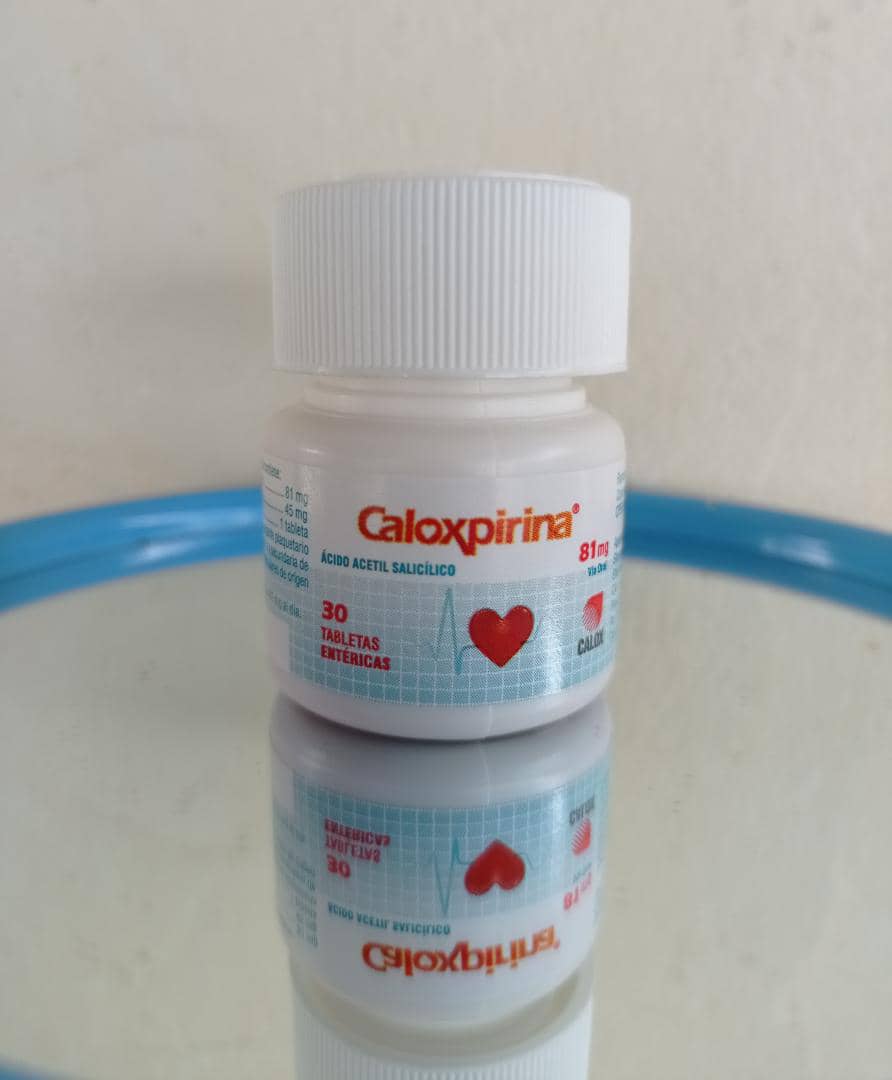
El ácido acetil salicílico es uno de los fármacos que provienen de los salicilatos, es uno de los fármacos más comunes, es de venta libre además de poseer diferentes usos. Cabe destacar que es importante consultar su médico y no exceder las dosis recomendadas.

Esta indicado como antipirético, antiinflamatorio en enfermedades reumáticas, analgésico, es un AINE, quizás muchas personas solo lo conocen por estas indicaciones pero actualmente es un fármaco inhibidor de la agregación plaquetaria es decir que está indicado en enfermedades cardiovasculares, su objetivo es disminuir la agregación plaquetaria y así evitar la formación de trombos.

El ácido acetil salicílico está indicado en la enfermedad vascular cerebral, trombosis venosa profundad, cardiopatías isquémicas, tromboembolismo pulmonar, la efectividad del fármaco en estos casos ha sido positiva. Su absorción es a nivel de las vías digestivas y su excreción es a nivel renal es decir a través de la orina.

Por otra parte es utilizado inicialmente en la carga antitrombótica junto a otros fármacos, en pacientes con infarto agudo de miocardio. Muy utilizado en el área de cardiología.

Su nombre comercial es aspirina, las presentaciones varían, algunas son tabletas de 100mg, 500mg, 81mg, el modo de administración es vía oral, en la imagen tenemos una presentación de 81 mg frasco de 30 tabletas. Es ideal tomar la dosis durante el desayuno.

Se debe mantener precaución en pacientes con insuficiencia renal y hepática, en purpura trombocitopénica, pacientes con déficit de vitamina K en donde es característica las hemorragias. Además de estar contraindicado en pacientes alérgicos a los AINE.

Entre las principales reacciones adversas tenemos dolor abdominal, náuseas, vómitos, pirosis (ardor estomacal) hematemesis (vomito con presencia de sangre) urticaria, siendo estas las principales.

El ácido acetil salicílico se ha convertido en un fármaco de gran importancia en el tratamiento enfermedades cardiovasculares y otras enfermedades crónicas, reduciendo los índices de mortalidad en muchos pacientes. El personal de enfermería debe estar al tanto de nuevas actualizaciones en las indicaciones de los fármacos y la aspirina es un ejemplo de ello, debido a que en ocasiones se utilizó solo como AINE.

ENGLISH
Acetyl salicylic acid is one of the drugs that come from salicylates, it is one of the most common drugs, it is available over the counter as well as having different uses. It should be noted that it is important to consult your doctor and not exceed the recommended doses.
It is indicated as an antipyretic, anti-inflammatory in rheumatic diseases, analgesic, it is an NSAID, perhaps many people only know it for these indications but currently it is a drug that inhibits platelet aggregation, that is, it is indicated in cardiovascular diseases, its objective is to reduce aggregation platelet and thus avoid the formation of thrombi.
Acetyl salicylic acid is indicated in cerebral vascular disease, deep vein thrombosis, ischemic heart disease, pulmonary thromboembolism, the effectiveness of the drug in these cases has been positive. Its absorption is at the level of the digestive tract and its excretion is at the renal level, that is, through the urine.
On the other hand, it is used initially in the antithrombotic load together with other drugs, in patients with acute myocardial infarction. Widely used in the area of cardiology.
Its commercial name is aspirin, the presentations vary, some are tablets of 100mg, 500mg, 81mg, the mode of administration is orally, in the image we have a presentation of 81mg bottle of 30 tablets. It is ideal to take the dose during breakfast.
Caution should be maintained in patients with renal and hepatic insufficiency, in thrombocytopenic purpura, patients with vitamin K deficiency where bleeding is characteristic. In addition to being contraindicated in patients allergic to NSAIDs.
Among the main adverse reactions we have abdominal pain, nausea, vomiting, heartburn (heartburn), hematemesis (vomiting with the presence of blood), urticaria, these being the main ones.
Acetylsalicylic acid has become a drug of great importance in the treatment of cardiovascular diseases and other chronic diseases, reducing mortality rates in many patients. Nursing staff should be aware of new updates in drug indications, and aspirin is an example of this, since it was sometimes used alone as NSAIDs.

La información que acabas de leer es de mi aprendizaje en la carrera de T.S.U en enfermería. - The information you just read is from my learning in the career of T.S.U in nursing.
El separador e imágenes son de mi propiedad. - The separator and images are my property.
Traducción de: Google traductor - Translation of: Google translator.


Diseño creado en @PicsArt. - Design created in @PicsArt.

Su post ha sido valorado por @ramonycajal
Muchas gracias, un saludo
Congratulations, your post has been upvoted by @dsc-r2cornell, which is the curating account for @R2cornell's Discord Community.
Muchas gracias